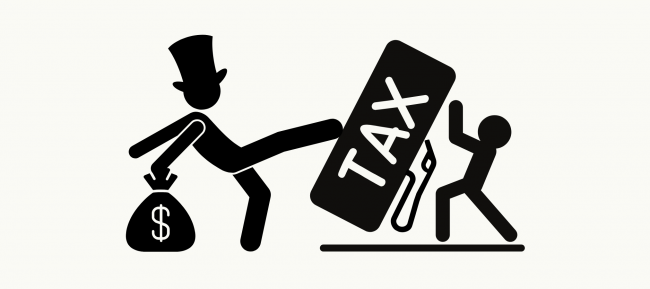Articles Menu

Jun. 27, 2024
When BC first introduced a carbon tax in 2008 the point was to apply it to all emissions causing climate change, but start at a low rate and increase it over time. Yet, as the carbon tax has increased for households at the gas pump and to heat homes, large industrial players—including the oil and gas industry that is causing climate change—have steadily evaded their carbon tax.
When the NDP government came into power in 2017 and committed to raising BC’s carbon tax it made special provisions for industry. Their increased carbon taxes would be fully returned to best-in-class companies and through supporting projects advancing industrial decarbonization.
As of April 2024, a new system—output-based pricing system (OBPS)—is in place. The name is somewhat confusing—it is not about output but emissions—but the key point is that it is a system of managing carbon pricing for big polluters by exempting a portion of emissions from taxation. In doing so, companies still have an incentive to reduce emissions “on the margin” but the exemptions preserve the “competitiveness” of operations vis-a-vis other jurisdictions.
Large industrial players have steadily evaded their carbon tax.
Why we should be concerned about the competitiveness of the oil and gas industry, whose business model involves overheating the planet, is never discussed.
This new system exempts 65% of industrial emissions from the carbon tax. In other words, the oil and gas industry will only have to pay the carbon tax on just over one-third of its carbon emissions. Higher exemption rates, up to 95% of emissions, have been specified for a few areas like aluminum and cement because their emissions are from industrial processes not burning fossil fuels.
Of what’s left to pay in carbon tax, up to half can instead be met through loopholes called “compliance mechanisms.” Companies can use banked credits from previous years, credits purchased from other companies, and most problematically, carbon offsets.
Carbon offset projects are a license to pollute. Companies can spend much less (than they would otherwise pay in carbon tax) on cheaper projects that allegedly reduce emissions elsewhere, including forest conservation and agriculture projects. Some of these reflect worthy objectives, but it’s not clear that they actually reduce emissions as claimed.
Indeed, offset projects have proven to be a form of greenwashing. A decade ago, BC’s Auditor General slammed the government for claiming offsets for projects that would have happened anyway through bona fide emissions reductions. A more recent inquiry into global offset projects found that a large share of corporate projects were “likely junk.”
On the plus side, the ability of large industries in BC to use compliance mechanisms will drop from 50% of carbon tax owed this year to 40% next year and 30% in 2026. And the system is designed to get tougher on polluters over time, through a “tightening rate” of 1% annually that lowers the emission limit for each company before the carbon tax must be paid.
Exactly how the tightening rate will be implemented is not stated, but presumably, the 65% of emissions exempted this year will then drop to 64% next year and so forth. Fifteen years from now, one-half (50%) of emissions will still be exempted. So the regime does get tougher on emissions but takes its time doing so.
Offset projects have proven to be a form of greenwashing.
The new BC system was inspired by a similar federal system that has been in place since 2018. BC industrial emitters were seeking to join the federal system but seemingly have gotten a better deal with a “made in BC” OBPS. The specs of the BC system were substantially watered down relative to the initial proposals tabled last year.
Indeed, they dovetail with a recent story in the National Post about a former NDP staffer working for TC Energy bragging about the company’s “influence tactics” with senior BC civil servants. According to the Post, “the company’s efforts “dramatically” influenced BC’s carbon-tax rate adjustment in February 2023 and ultimately halved the operation costs of the province’s carbon tax on its projects.”
Gas production numbers also speak volumes. There was a 44% increase in BC’s gas production between 2017 and 2023, and this will rise even more when the new LNG Canada export facility opens up next year in Kitimat.
The BC government must stop pandering to lobbying by the oil and gas industry.
It’s no surprise that big polluting companies are not happy about annual carbon tax increases. But it is unfair that British Columbians must pay the full carbon tax when the oil and gas industry—whose production is responsible for more than one-quarter of BC carbon emissions—gets a carbon tax break.
The new system will also have a negative impact on BC’s carbon tax revenues. In 2024/25, carbon tax revenues will be about $500 million lower than they would have been under the old system. This revenue loss means fewer dollars to pay for climate action.
These changes point to a BC government that is far too cozy with the oil and gas industry. And they make no sense given the urgency of acting on climate change. Disasters in 2021 alone caused between $11 and 16 billion in damages to the BC economy.
If BC really wants to be a climate leader, the BC government must stop pandering to lobbying by the oil and gas industry that is causing climate change and act in the interests of all British Columbians.